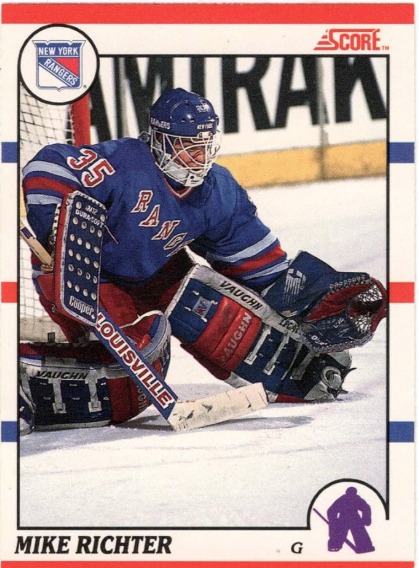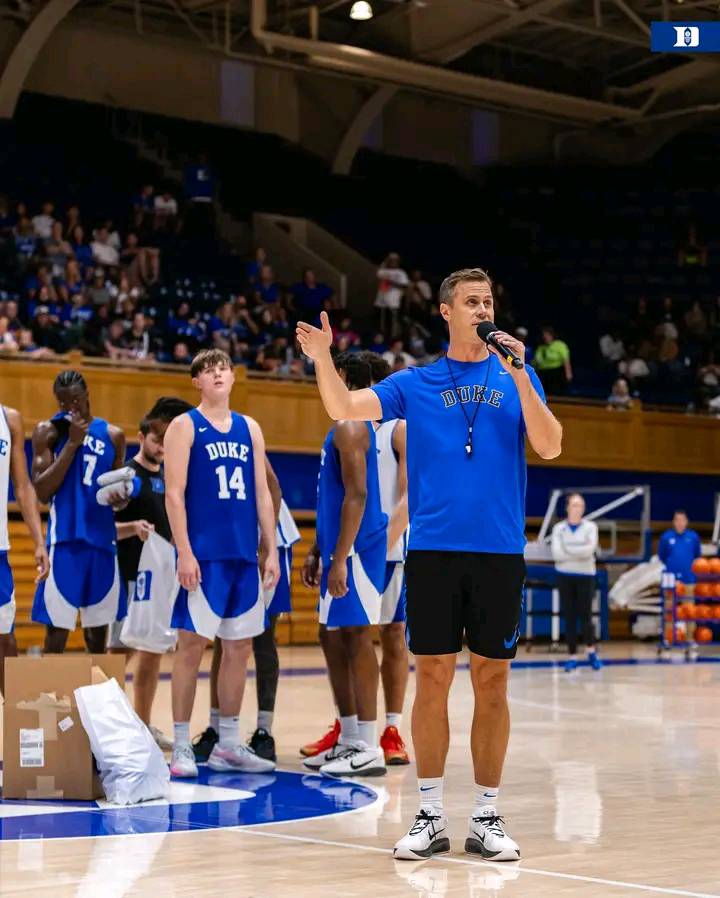Mike Richter: The Journey of an 80’s-Born Goalie Who Became a 90’s NHL Legend and Ended New York Rangers’ 54-Year Stanley Cup Drought
Mike Richter’s story is a compelling narrative of talent, perseverance, and timely opportunity, marking him as one of the most iconic goaltenders in NHL history. Though widely recognized as a 90’s star, Richter’s formative years and early professional steps trace back to the late 1980s, placing him firmly in the narrative of that transformative era of hockey. Born in Abington, Pennsylvania in 1966, Richter’s path to NHL stardom was shaped by his early development in competitive hockey and his unwavering dedication to the sport.
Growing up, Richter quickly distinguished himself as a standout goalie during his high school years. His skill and potential did not go unnoticed; in 1985, at just 19 years old, he was selected 28th overall by the New York Rangers in the NHL Entry Draft. Instead of rushing directly into professional hockey, Richter chose to hone his abilities in college, committing two crucial years to the University of Wisconsin. There, he earned recognition as a WCHA All-Star in 1987, underscoring his growing reputation as a top-tier goaltender.
Following his collegiate success, Richter took an important step onto the international stage. He joined the United States National Program and proudly represented Team USA at the 1988 Winter Olympics. His performance at the Olympics marked a significant milestone and was a prelude to his professional career. After the games, Richter transitioned to the professional ranks, joining the Colorado Rangers of the International Hockey League (IHL), a key development league at the time.
During the 1988-89 season, Richter played 57 games with the Colorado Rangers, who later rebranded as the Denver Rangers. His strong performances in the IHL earned him a call-up to the NHL for the Stanley Cup Playoffs that same year. Although the New York Rangers struggled in the 1989 playoffs — losing their first three games in the opening round to the Pittsburgh Penguins — Richter was given a chance to make his NHL debut in Game 4. On April 9, 1989, he stepped onto the ice as the Rangers’ goalie for the first time, a game that ended in a narrow 4-3 loss. Despite the defeat, Richter’s poise and skill convinced the Rangers’ management that he was ready to begin carving out a lasting NHL career.
The 1989-90 season saw Richter begin as a backup, but he spent time both in the NHL and the IHL, being assigned to the Flint Spirits early in the season. By January, he was recalled to New York and gradually became a more integral part of the team, serving as backup to veteran goalie John Vanbiesbrouck. Together, they shared starting duties in the playoffs, setting the stage for Richter’s eventual rise to the number one goalie spot.
For the next three seasons, Richter and Vanbiesbrouck split goaltending responsibilities for the Rangers. However, by the summer of 1993, the Rangers decided to commit fully to Richter as their starting goalie. This decision left Vanbiesbrouck exposed to the expansion draft, signaling a new era for New York’s goaltending. Richter embraced this opportunity with determination and quickly solidified himself as the team’s franchise netminder.
Richter’s tenure as the Rangers’ primary goalie coincided with one of the most memorable moments in NHL history. The 1993-94 season culminated in the Rangers capturing the Stanley Cup, ending a 54-year championship drought for the franchise. Richter’s stellar play in goal was pivotal to the team’s success, etching his name forever into Rangers lore and cementing his legacy as a clutch playoff performer.
Following this pinnacle achievement, Richter continued to anchor the Rangers’ net throughout the 1990s. Though the team did not replicate its Stanley Cup glory during the remaining years of his career, Richter remained a consistent and respected presence. As the new millennium dawned, his playing time began to diminish, a natural progression as younger talents emerged and the team transitioned.
After a notable career spanning over a decade with the Rangers, Mike Richter retired from professional hockey in 2003. His contributions to the franchise and the sport were formally recognized in 2004 when the Rangers retired his iconic number, honoring him among the greatest players in team history.
Post-retirement, Richter transitioned into a career outside of hockey, choosing to focus on the energy sector. His journey from a standout high school goalie in Pennsylvania to a celebrated NHL champion and respected businessman reflects a life defined by perseverance, adaptability, and success both on and off the ice.
Mike Richter’s legacy endures as a symbol of dedication and excellence. His story reminds hockey fans and aspiring athletes alike that greatness often emerges through patient development, seizing opportunity, and the relentless pursuit of one’s goals. From his early days in the 1980s to the historic triumphs of the 1990s and beyond, Richter’s career is a testament to the enduring impact one player can have on a storied franchise and the sport itself.



